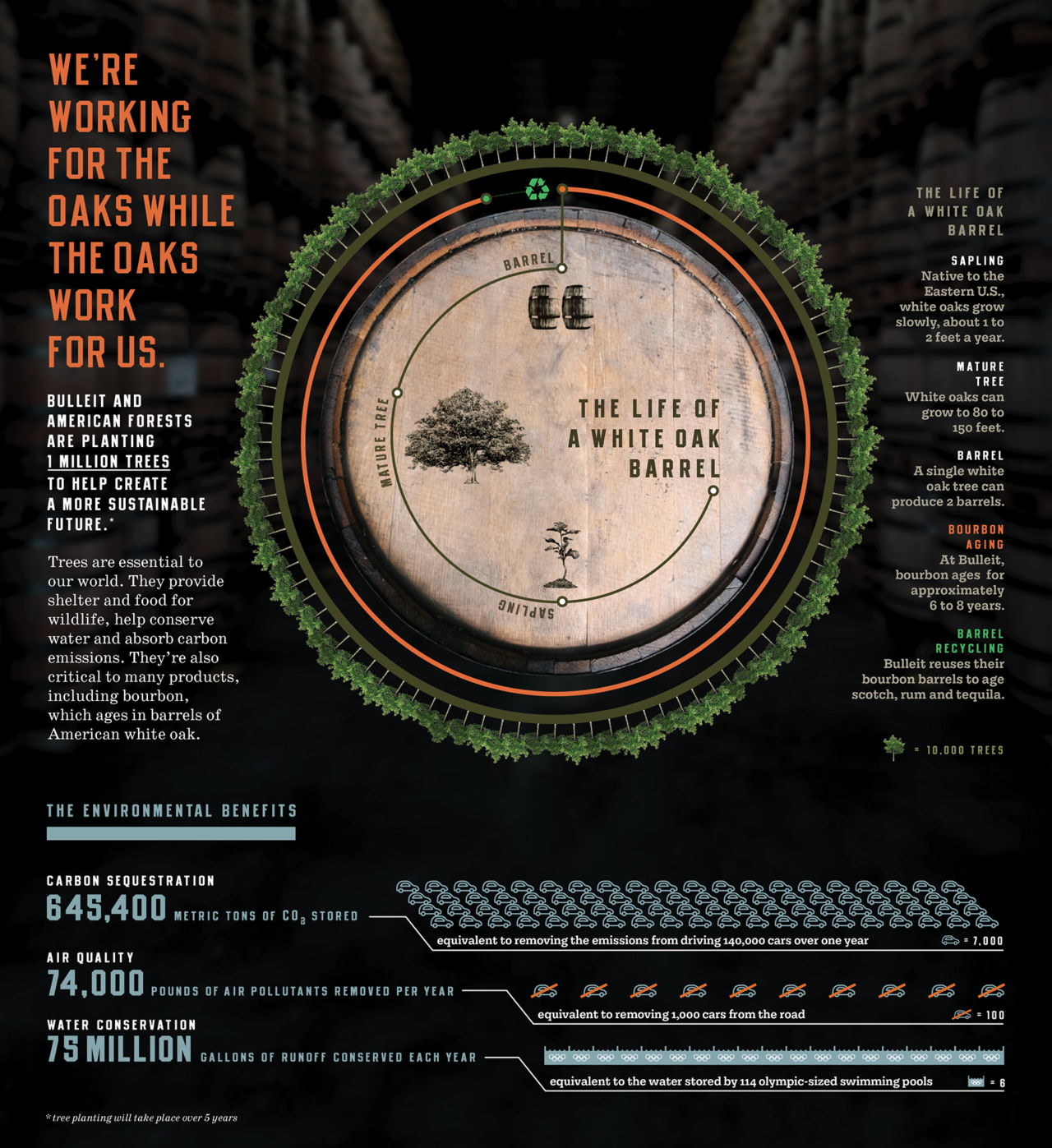The white oak holds a uniquely essential place in American life. Found throughout much of the Ozarks and the Appalachians, the tree is the bedrock of ecosystems, providing habitat and food for hundreds of species, helping conserve water and absorbing carbon emissions. Its wood is used in everything from hardwood floors to whiskey barrels.
In October 2020, Kentucky bourbon- and whiskey-maker Bulleit Frontier Whiskey joined American Forests and committed to planting 2.5 million trees over six years, with a focus on white oaks, which are threatened by deer eating seedlings, lack of low-intensity wildfires and repeated pest invasions.
The company is helping restore about 2,000 acres of forest landscapes in several eastern states, preserving the forests’ ability to mitigate climate change, clean water and provide a home for wildlife far into the future.

Bulleit has a special relationship with the white oak: Considering that bourbon must be aged in new charred oak barrels, there could be no bourbon without this tree.
“At Bulleit, we believe now more than ever that businesses have a responsibility to our environment, our communities and our planet,” said Sophie Kelly, senior vice president of whiskey at Diageo North America. “We’re so excited about our partnership with American Forests because it allows us to further our commitment to sustainability and help in the fight against climate by planting these trees.”
Bulleit’s partnership with American Forests is a continuation of the brand’s commitment to helping create a more sustainable future.
Over the past 100 years, white oaks have grown steadily and are the most prominent trees in eastern woods by volume. But the oak’s future is less certain. The number of white oak seedlings has rapidly declined due to a variety of factors, including too many deer, lack of natural and low-intensity wildfires, and repeated pest invasions. Given it takes decade for oaks to mature, it’s critical to act now to maintain this important resource.
“White oak forests benefit every aspect of our lives, from providing clean air and water to the amazing smells and flavors in a glass of bourbon,” said Jad Daley, president and chief executive officer of American Forests. “This great new partnership with Bulleit will give back to these forests by taking care of white oak forests for long-term health and resilience.”
As a Kentucky bourbon- and whiskey-maker, Bulleit has a special relationship with the white oak. Without the tree, there could be no bourbon. That’s because by definition, bourbon must be aged in new charred oak barrels, which give the liquor its color and taste.
The partnership has evolved in its second year as Bulleit has committed to create greenspace in urban areas through American Forests’ Tree Equity program.